When you stand back and visually compare solid hardwood flooring vs engineered wood floors it’s often difficult to even tell them apart. Their color selections, style choices and grains are nearly mirror images to one another. in fact, many times you would need to hold them side-by-side and look at a cross section of each flooring plank to truly see the differences. That’s how close the appearance of engineered wood flooring is to solid hardwood floors.
But that’s where the similarities of engineered and solid hardwood flooring ends. The difference in solid hardwood floor durability, composition, installation methods and applications are not the same as with engineered wood flooring.
Composition of Engineered Wood Flooring
The vast difference between the composition of engineered wood flooring and solid wood planks is primarily centered around layers. Engineered wood floor planks contain a few layers of multiple thin plies, along with a top layer veneer of the desired wood species. On average, the total layers comprising engineered flooring range from around 4 to 6, but can go up to around 9 layers in some cases. As for the actual natural wood veneer that tops the engineered flooring layers, its thickness depends on the type/brand you select. The cost of engineered floors will usually increase inline with the choice of a thicker wood veneer version, versus a thinner top layer.
Solid hardwood floors on the other hand are constructed of one solid plank of one variety of wood species straight through the entire piece. Not surprising at all, many people who choose engineered wood flooring over solid hardwood is increasing over the past several years. In fact, studies show that 30% of all wood flooring sold in the US is engineered wood.
Why Pick Engineered Wood Flooring?
If you are searching for that beautifully crafted wood aesthetic, then you’ll be surprised at how easily you will be fooled by the look of today’s engineered hardwood. Since its inception over 50 years ago, engineered wood flooring has drastically refined in ways that are obvious and some that are not as much.
Let’s cover 5 considerations for choosing engineered wood flooring –
1- Matches the look and design of any style home: Just the sheer variety of wood species alone will have you excited about selecting the perfect style wood floor for your renovated or new home. There are many surfaces to choose from as well, such as hand scraped or antiqued. All sorts of design options are available in the engineered wood composition and look fabulous in any vintage house or modern home. Any style home can be matched with the perfect flooring design through this product.
2- Durable in high traffic areas: Durability is always the issue when asked about engineered flooring over anything else. You will find that most of the planks come with a factory finish already applied. You won’t need to sand and finish your final floor installation, which can be a huge time saver but also comes with a powerful warranty on the finish. You can plan on enjoying your floors for 10 – 30 years in most cases, so durability is not a concern.
If you have pets and a busy family lifestyle in your home, engineered wood flooring will fit the bill. You won’t need to worry about any delamination since most manufacturers provide significant warranties. You may want to consider a harder top veneer layer for more durability to protect against damage. Also, move toward selecting a denser wood species is you are concerned about high traffic, dents and scratches. Lastly, if you are looking to reduce the natural wear and tear of your flooring, we suggest that you go with a little to no gloss option, which will show less traffic wear.
3- Installs in places hardwood flooring can’t go: Overall engineered wood flooring can be applied anywhere you would install solid hardwood flooring, however there are probably some applications for engineered wood flooring that you should never use a solid wood plank floor.
Moisture ridden locations are key, so if you have a basement or any below grade space, you will want to definitely consider engineered flooring vs solid hardwood. The engineered floor planks float atop the subfloor and allows it to expand and contract in humid locations or areas that might have possible moisture.
The fact that engineered floors are thinner in their overall construction, it can help in areas where you need more headroom. Engineered wood flooring also provide a transfer of heat much more effectively than the solid wood floor products and therefore tend to be generally more stable. You can forget staples and nails with engineered flooring since it is set floating on top of the subfloor and any flooring wires or water hoses will not be affected.
4- Easy maintenance and upkeep: Sweeping up is a cinch with just a simple microfiber cloth and some good wood floor cleaner to mop away the dirt that scratches the top finish. You can take engineered wood flooring from the living room to bathroom and the dining room to the kitchen because moisture is not issue. Cleaning is a snap when you can whisk from one room to the next with the same floor cleaning appliance.
5- DIY lover’s dream: If you love the idea of engineered wood flooring for all of the above reasons and you like to take on a project, this is one you can probably do all on your own. Since installation is primarily just setting the boards down without any sanding, staining or finishing to be done, you will be able to most likely walk on and enjoy your floors the very day you install them. The engineered wood floor planks come prefinished for you to measure, cut and install within your favorite space.
Where Should I Not Use Engineered Wood Flooring?
Water is the villain for most homeowners and in Portland we sure know about that! But engineered flooring can handle the Pacific Northwest dampness quite nicely. The limitation would be sopping wet feet (people or dogs), water puddles or saturated towels that sit on the floor in your busy bathroom. If you have constant steam from the shower without really good ventilation, you might find your boards will not hold up as well and put them at risk. This goes for any room with this kind of water or moisture extremes.
All in all considering engineered wood floors is a good option. You just need to know the specific application for the flooring, as well as your budget constraints. This will direct you to the proper engineered wood floor product to select from and our team in the showroom is standing by waiting to walk you through each step of that process. If in the end you still opt to purchase a solid hardwood flooring product, of course we have that too. It is our goal to make the flooring selection process simple, yet informed.


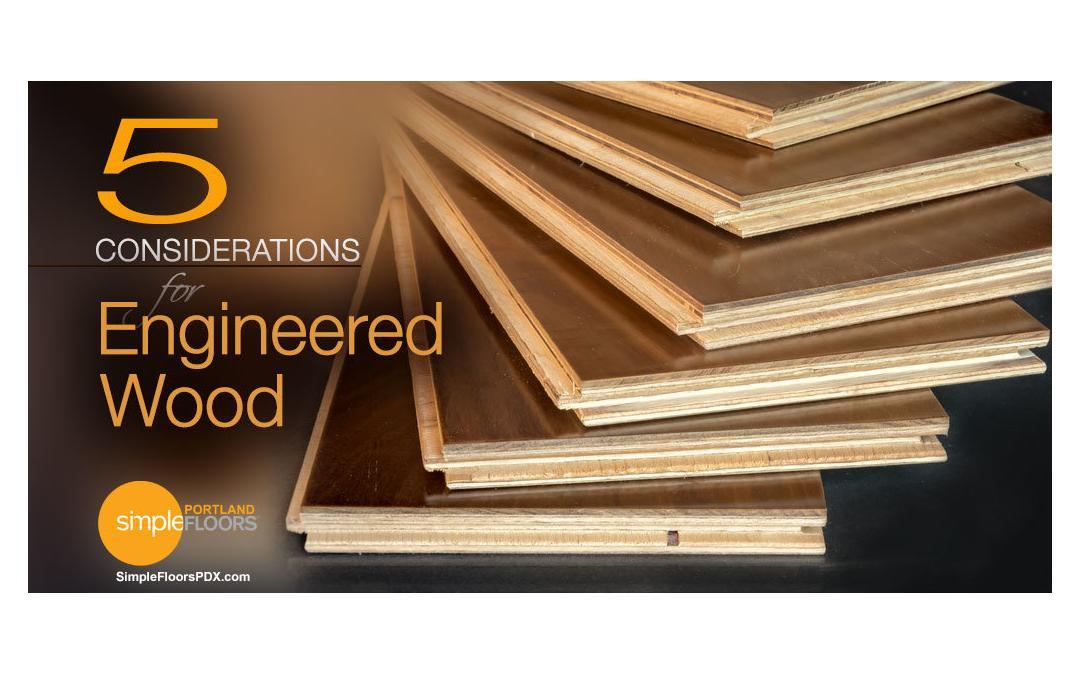

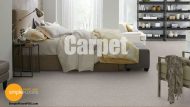
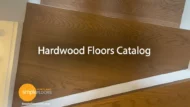
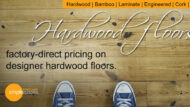
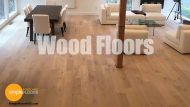
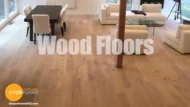
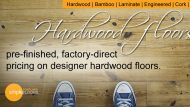
Is it ok to install different colors and grains in bath & kitchen.
They would have to be the same brand with the same click attaching and the same thickness. For it to work okay